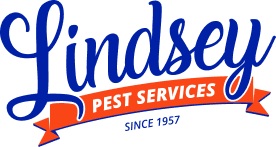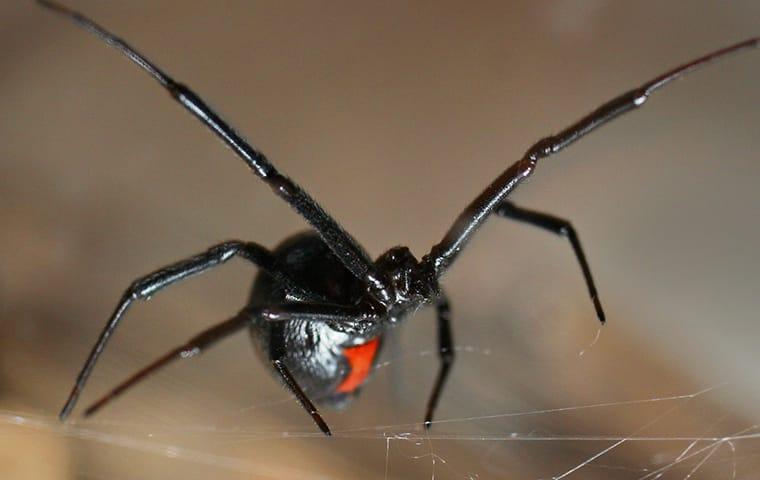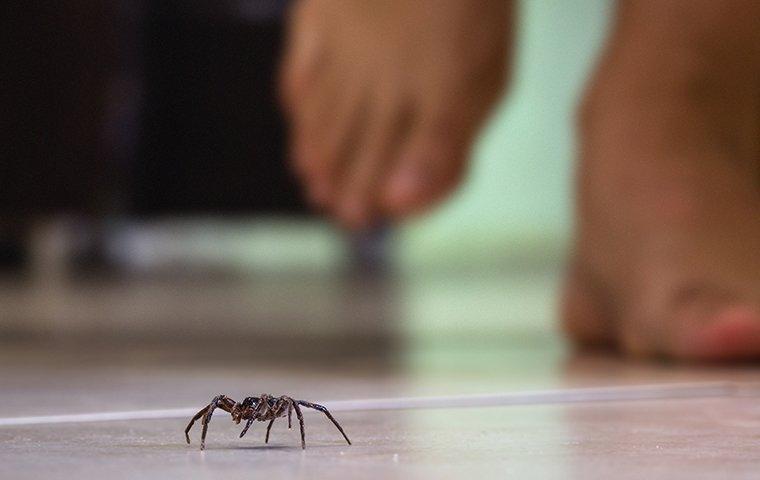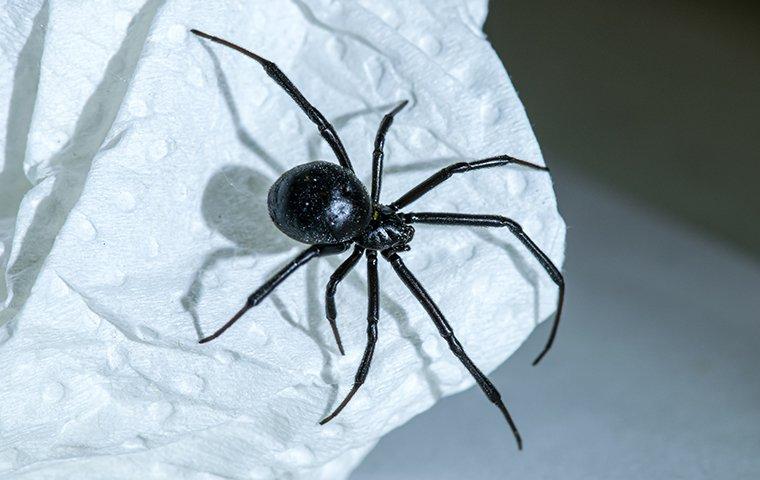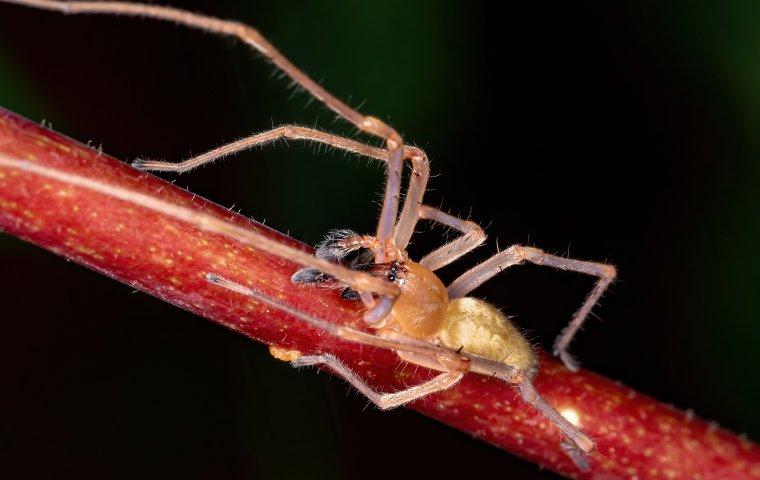Spider Be Gone: Expert Tips For Effective Spider Control For Your Jacksonville Home
Spiders turn up in many places. You'll see webs while you're trimming your brush and plants. You'll see webs in the cavities of objects in your backyard. You'll find webs in your garage or shed. You'll even find webs inside your home. While unsightly, webs provide a warning sign that spiders are near. But some spiders don't make webs. One of them is a common venomous spider in Florida. Join us as we look at common spiders in Jacksonville, give a few helpful facts about the different species, explain which spiders to watch out for, and share what you can do to prevent spider problems. Everything you need for all-natural spider management is right here! If you'd like help with managing spiders and preventing spider bites, remember that your Lindsey Pest Services team is ready to help. We offer trusted pest control in Jacksonville and service with a smile. Connect with us through our contact page or give us a call.
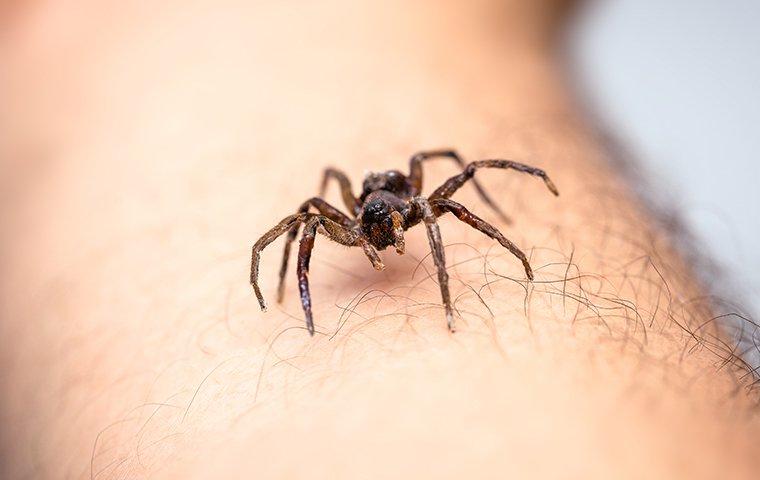
Spider Identification: How To Recognize Different Species
We have all kinds of spiders in Jacksonville. We're not going to get into every possible species that you may find in your yard. That would take a long time. For the sake of brevity, we'll tell you how spiders differ from each other, and why you may find them hanging out.
Let's start with spiders that build webs. They make up the largest population. You can tell they're around because they make unsightly webs for you to find. One web builder you should know something about is the widow spider. They come in two colors: black and brown. Both of these spiders have a bright colored hourglass mark on the bottom of the abdomen if they are adults. You can also detect them by inspecting webs. Widows have strong web strands that make a noise when they are broken.
Some spiders don't make webs. In this group, wolf spiders are the most common. Wolf spiders are hairy and scary. But they are quite docile. If you come in contact with a wolf spider, you're not likely to get bitten. Another non-web building spider (one that you don't want to have a run-in with) is the recluse spider. A recluse spider isn't hairy. It is also smaller than most wolf spiders. On its back, you'll see a dark brown violin mark.
Some spiders don't prefer to live in your home. They'll establish webs in gardens, landscaping, and around light fixtures and trash receptacles outdoors. These spiders tend to have a bite that feels like a bee sting. Keep watch for their webs to avoid unwanted contact. Bites typically occur when webs are disturbed and spiders accidentally mistake us for prey.
Some spiders invade homes by accident but they don't stay long. In this group, widow spiders are the worst. You can deter widows from entering your home by reducing food sources around your home and sealing potential entry points in your exterior. If this kind of spider invades your home, it may go back outside on its own. But you don't have to wait for it to do so. You can contact Lindsey Pest Services for spider control.
Some spiders love living indoors. These are called house spiders. Most common house spiders have weak venom. If you're bitten, you may not even realize it, and the resulting wound will turn into an itchy bump. A small group of these spiders have weak fangs; they are unable to bite you at all. In most cases, house spiders are merely an annoyance. The worst of all house spiders in Florida is the brown recluse. Brown recluse spiders are non-web builders that can grow a large population inside man-made structures when food sources are available.
How bad is it to have spiders in your Jacksonville home? Let's take a quick look at what you can expect from unwanted arachnids.
Spider Problems: Why You Don't Want These Arachnids In Your Home
There are many ways spiders create problems. Some of the ways may surprise you. We'll start with the problems we're sure you are aware of and also provide a few facts you may not know.
- House spiders make ugly webs that are irritating to clean up, particularly when they're in high locations.
- House spiders show up when you least expect it, and they can startle you.
- Mild spider bites are annoying.
- Intermediate spider bites are painful.
- A bite from a black widow spider can lead to medical symptoms. But you should know that sometimes a black widow can cause a dry bite, which is when no venom is injected into the wound.
- A bite from a brown recluse spider can lead to spreading necrosis. Fortunately, these spiders aren't looking to bite humans and they tend to stay in secluded spaces.
- Spiders hatch hundreds of spiderlings at a time. It doesn't take long for a spider problem to grow.
- Spiders are a food source for other pests. If you have a spider problem, it can become a catalyst for another pest problem.
- Some arachnids are far more dangerous than spiders. When ticks infest your home, they could expose you to diseases that have lifelong medical symptoms which can severely impact your quality of life.
It is best to address arachnids expeditiously. You can do this with many all-natural spider prevention methods. Some prevention methods also help with control. If you currently have a spider problem, the following tips may prove valuable. Let's take a look at them.
Preventing Spider Infestations: Practical Tips And Tricks
Whether you're looking to deal with common house spiders in Florida, or you want to reduce the number of spiders around your home, these practical tips and tricks will help. We'll break them down into simple categories and provide some specific examples.
Reduce Spider Food Options Outdoors: Spiders go where their food is found, namely insects. Removing food has a big impact on how many spiders you'll see around your home. The secret is to remove the things that insects are looking for near your home.
- Cover trash receptacles to reduce flies and other pests.
- Clean trash receptacles to reduce odors that attract pests.
- Trim vegetation to reduce moisture in your landscaping, which reduces plant disease and decay and reduces moisture pest activity.
- Reduce exterior white light. Insects are attracted to white light. Installing yellow bulbs can make a big difference.
Remove Spider Webs: A spider web can have an egg sac with hundreds of spiders hidden inside. When you proactively remove spider webs, you stunt spider reproduction and reduce activity.
- Use a spider web removal tool to collect spider webs for disposal.
- Attach your spider web removal tool to a long pole to reach spider webs under your roofline.
- When you find paper-like egg sacs, you can simply crush them to destroy the spiders inside.
Remove Hiding Places: Spiders hide in the objects found in your yard. When you remove the places spiders can hide, you'll reduce activity.
- Pick up toys.
- Move stored objects into sheds or storage lockers.
- Store dead branches in a covered plastic bin or remove them.
- Rake and remove leaves and other organic debris.
Remove Pathways: Spiders don't create tunnels to enter your home. They use openings that exist in your foundation, exterior walls, and around your door frames.
- Apply caulking material around window and door frames.
- Replace old or worn-out weatherstripping.
- Patch window and door screens or have them replaced.
- Apply mortar to patch foundation cracks.
- Use expanding foam to get all gaps, holes, and voids.
Address Indoor Spider Food: When spiders enter your home and find it devoid of food options, they may go right back outside. Here are a few ideas to remove their food.
- Keep your home clean.
- Keep certain pantry foods in sealed containers.
- Store fruits and vegetables in your fridge, or within sealed containers.
- Wash dishes as you go.
- Remove spider webs inside. Spiderlings are food for other pests and those pests are food for adult spiders.
Do you see how spider prevention works? When you control food and moisture and address entry points, you reduce your spider problems. It is a simple formula. Unfortunately, it isn't simple to stay on top of this each week. Let's look at how Lindsey Pest Services can help.
Professional Pest Control: A Great Spider Control Solution
When venomous spiders in Florida become a problem, we get a phone call. But you don't have to wait for a serious spider problem to take advantage of the benefits that professional pest control provides. When you have a year-round pest control service plan, your property and exterior will have what it needs to reduce the number of spiders and keep them from entering your home. We apply treatments to control pests, which are food for spiders. We apply a liquid barrier to your exterior to keep spiders and other pests out. We remove spider webs to reduce spider populations and activity near your home. This also reduces a food source for other pests. We address interior infestations so that spiders won't find ample food options when they accidentally get inside.
It is easy to get started with pest control for your home. Call, email, or text to set up a service visit with one of our licensed pest control professionals. We'll help you find the perfect service plan to meet your specific needs. You don't have to live with spiders. Contact us today for help with spiders and to learn more about our residential and commercial pest control services in Jacksonville.
Get Your Free Pest Control Quote Today!
Complete the form below to get started with your free, no-obligation quote, and a Lindsey Pest representative will contact you shortly.
Same Day Service Available!
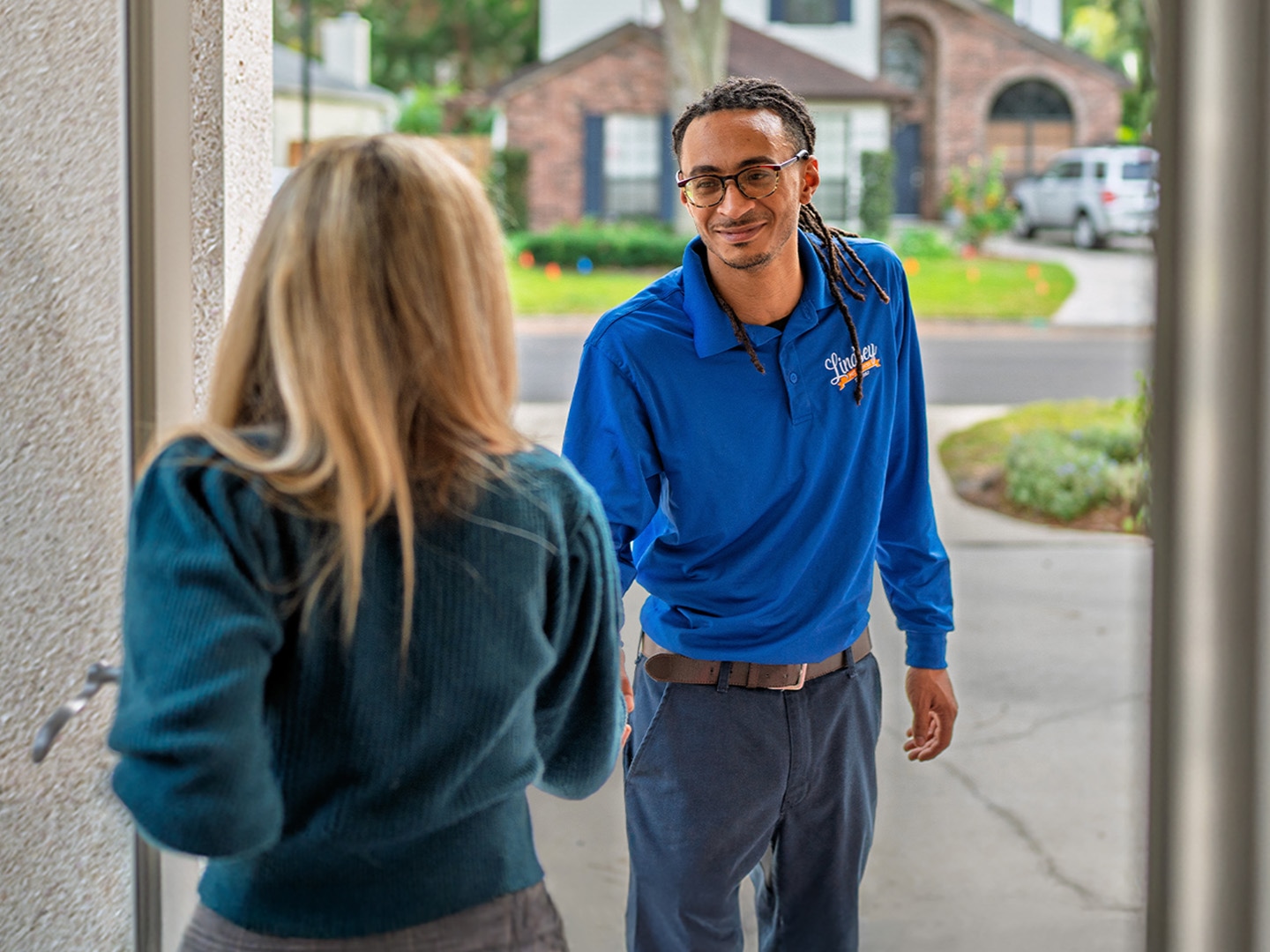
Blog Posts
